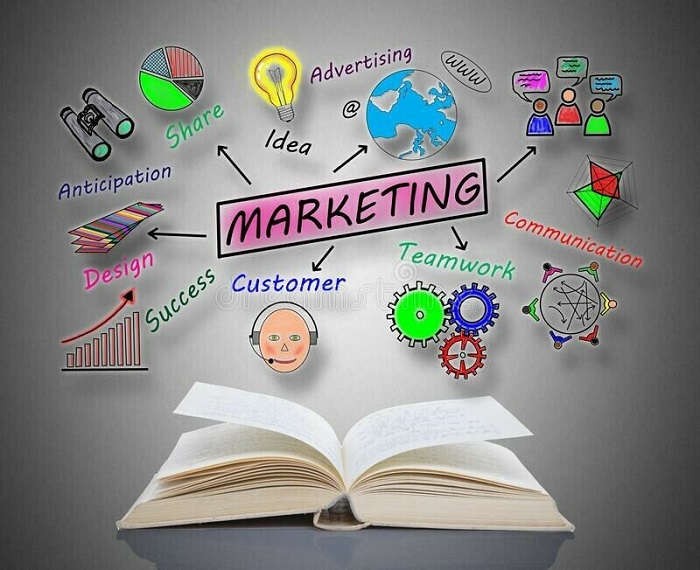In 2025, it’s hard to get people to notice your book. There are numerous books available online, and readers are exposed to ads frequently. Most people just scroll past without stopping. This makes it harder for authors, publishers, and bookstores to reach real readers. So, what should you do? Focus on paid ads vs. organic marketing? Or try using both together for better results?
Both ways can work. Paid promotion means you spend money to get your book seen quickly. It’s fast but costs money every time someone clicks on your ad. Organic promotion means you don’t spend money. Instead, you post on social media, write blogs, or send newsletters, hoping people find you over time. This way is free but slow. In this guide, you’ll learn how both options work and which might be right for you.
Today, readers don’t trust ads like they used to. People prefer real content and honest recommendations before buying a book. Plus, running ads is getting more expensive every year. That’s why using only paid promotion is not enough anymore. Organic promotion alone is too slow.
The best option? Use both together. Pay for ads when you need quick results, and keep sharing real content to build trust. This balanced approach of paid vs. organic book promotion works best for most authors today.
Understanding Paid vs. Organic Book Promotion
Let’s be honest—getting people to notice your book is hard. The choice between paid ads vs. organic marketing plays a big role in how fast or slow your book gets attention.
What Is Paid Book Promotion?

Paid book promotion is simple. It’s one of the most direct ways how to promote your book with ads, where you pay to show your book to people online. You can run ads on places like Amazon, Facebook, or BookBub. Paid ads help your book get noticed fast, sometimes within hours. You can also see how many people clicked your ad and if they bought your book. The biggest benefit of paid promotion is speed. You get fast exposure, can control who sees your book, and can track your results easily.
But there are downsides. It costs money, and you need to check your ads often to avoid wasting your budget. Paid ads aren’t simple to set up—you’ll need to learn how they work and adjust them regularly. Most authors use Amazon book marketing services because people there are already looking for books. Facebook Ads are good for reaching people based on their interests. BookBub helps reach lots of readers quickly, but it can cost more.
What Is Organic Book Promotion?

Organic promotion is different. You post things online for free and let people find your book over time. This could be short videos on TikTok, photos on Instagram, blog posts, or regular email updates to your readers. It’s slower, but it’s free, and it helps you build trust. People get to know you and your book through what you share, not just ads. If you write for kids, pairing your posts with top children’s book marketing services can help you reach parents and teachers faster.
But there’s a downside too. Growth is slow, and it takes a lot of work to keep posting and showing up consistently. If you stop, people forget about your book quickly. Many authors today use TikTok, Instagram, YouTube, and blogs as part of content marketing for authors to promote their books without spending money. This free method works, but it’s slow and needs regular posting. Staying active is important.
Key Trends Shaping Book Promotion in 2025
In 2025, book marketing trends show that people don’t care much about plain ads. People want to feel like they know the author a little before they get interested in the book. Paid ads can help show your book to the right people, but that’s only the first step.
You also need to share simple, real things about yourself. When people see these real updates, they feel like they know you. And when they know you, they’re more likely to care about your book. That’s why most authors today mix paid vs. organic book promotion, using ads to reach people fast and real posts to keep them interested.
Another thing that matters is the kind of content people like. Most people now like short videos more than pictures or long writing. TikTok videos, Instagram Reels, podcasts, and short book trailers work better now than simple posts. Even a short video saying hello or showing your book can get more attention. Many authors first post videos for free, then use paid book marketing to help those videos reach more people.
Strengths & Weaknesses of Paid Book Promotion
Paid ads can help your book get seen fast. That’s the best thing about them. If your book is new or on sale, paid ads can get your book in front of lots of people quickly. You can choose who sees your ad. You can also check your ad numbers to see if they’re working. This makes paid ads one of the best book marketing tools when you want quick results.
But ads are not perfect. The biggest problem is the cost. If your ad is not set up well, you might spend money without many clicks or sales. People get bored seeing the same ad again and again. Amazon Ads work well because people there are already looking for books. Paid book marketing can work well, but you need to watch it carefully and not spend too much too fast.
Strengths & Weaknesses of Organic Book Promotion
Organic promotion is when you share your book without paying. You can share simple videos, photos, or posts on TikTok, Instagram, or YouTube when learning how to market a book on social media. If you keep posting regularly, people will slowly notice you, remember your book, and start trusting what you share. People like seeing real posts from authors. It makes them feel like they know you. Your posts might also show up in searches and help more people find you.
But this way is slow. You need to keep posting again and again. If you stop, people forget about your book. It’s also hard to know if your posts are working because you don’t see clear results like ad clicks. Many writers use TikTok, blogs, and YouTube to promote their book online by sharing little updates. If you keep going and don’t stop, more people will slowly find your book.
How to Decide Which Strategy to Use (or Combine)
If you’re just starting out as an author, the best way to market a book is to keep things simple. Try free ways first, like TikTok or Instagram posts. You can also test small paid ads like Amazon’s auto ads. If you’re a middle-stage author, mix both paid ads and regular free updates. If you’re experienced, spend more on ads but keep posting updates to stay connected.
Paid ads vs. organic marketing also depend on the type of book you’ve written. For romance, fantasy, or young adult, TikTok videos and Facebook ads work well. For non-fiction, Google Ads and blogs are better. For children’s books, Instagram videos, and influencers help. No matter your book, using top book marketing services alongside paid ads and free posts can help you reach more readers.
Best Paid Platforms for Book Promotion in 2025

If you’re thinking about using the best eBook marketing services or paid ads to promote your book, it’s good to know where to spend your money. Not every platform works the same. Let’s look at the top options for how to promote your book with ads in 2025.
1. Amazon Ads (KDP Advertising)
Amazon Ads are one of the best choices for authors. People shopping on Amazon are already looking for books, so your ad shows up right where buyers are. You can use simple automatic ads or set them up yourself using keywords and book categories. Most authors find Amazon Ads helpful because they reach readers who are ready to buy.
2. Facebook & Instagram Ads
These work well if you can share good pictures or short videos about your book. You can show your ads to people who are like your current readers by using lookalike audiences. You can also remind people about your book using retargeting ads.
3. BookBub Ads
BookBub is a site many readers use to find book deals. You pay when people click on your ad, so it’s good for special offers like free books or discounts. Paid book marketing on BookBub works best when you focus on readers who already enjoy your genre.
4. TikTok Spark Ads
TikTok Spark Ads let you boost videos, either ones you made or ones made by other people who talked about your book. If one of those videos does well, you can pay to show it to more people. This helps you get more views and keeps your book in front of new readers.
Best Organic Platforms for Book Promotion in 2025

If you don’t want to spend money on ads, there are still many ways to help people find your book online. These free methods are part of effective book marketing strategies if you’re consistent and share real, simple posts over time.
1. TikTok & Instagram (BookTok & Reels)
Short videos work really well right now. TikTok and Instagram Reels are great places to talk about your book. Using popular songs and hashtags like #BookTok or #NewRelease helps more people find your videos without paying anything.
2. SEO Blogging + Medium or Substack
Writing blogs is another smart way to get found. If you write simple blog posts about your book or related topics, people searching on Google might land on your site. You can also post on Medium or Substack.
3. YouTube & Podcast Interviews
Today, lots of people like watching videos or listening to podcasts. You can make easy videos on YouTube or join podcasts to talk about your book. This helps people learn about you and slowly start trusting you more.
4. Goodreads Engagement
Goodreads is where many book lovers hang out. You can join chats, review books, or share updates about your own book. Taking part in discussions helps people notice you in a natural way.
Combining Paid & Organic for Maximum Results

The best plan is often to combine paid ads and free posts as part of your book marketing campaigns. Paid ads help people find your book quickly. Free posts help people remember you and trust you over time. Many writers run ads first to get noticed, then keep in touch through simple things like emails or social media posts. Ads get people in, but your free posts help keep them around. This balance of paid ads vs. organic marketing works well for most authors.
Retargeting means showing your ads again to people who saw your book but didn’t buy. At the same time, keep sharing free updates like small stories, book news, or simple posts to help people remember you. If your book is faith-based, getting help from professional Christian book marketing services can improve your ads. Tools like Facebook Pixel and Amazon Tags help track clicks and show your ads again to people already interested.
Budgeting & Measuring ROI
It’s important to track how you spend your time and money, especially when using top book marketing services for self-published authors. Paid ads need real money, as you pay for each click or view. Free posts don’t cost money, but they take lots of time and steady effort. Keep creating videos, posts, and blogs to stay seen by readers.
To know what’s working, check your numbers. For paid ads, use Amazon Ads or Facebook Ads reports to see clicks and sales. For your free work, like content marketing for authors, use Google Analytics to see if people visit your site or open your emails. Simple tools like BookReport can help you track book sales. Keep checking what works best, so you don’t waste time or money.
Common Mistakes to Avoid
One big mistake many writers make when working on how to promote their low-content books is relying on just free posts or just paid ads. If you only use free posts, things will move very slowly. But only using paid ads isn’t a good idea either. Paid ads work best when people already feel connected to you through your free posts.
Another mistake is ignoring where people spend their time. Some years back, Facebook ads worked really well. But now, more people are spending their time on TikTok. This makes TikTok an important spot to promote your book online. Always watch where readers spend time and adjust your plan to match where they are.
Conclusion
In 2025, paid vs. organic book promotion is all about what suits you best. Which one you choose depends on your experience as an author, your budget, your book’s genre, and how much time you can give. Using both together is often the smartest choice. Start with free methods like social posts or blogs to build a steady audience.
Then add paid ads during your book launch marketing, promotions, or giveaways to boost quick results. Keep tracking your results and adjust your plan as reader habits and platforms change. This simple mix helps you stay visible, reach more readers, and build lasting interest in your book.
Frequently Asked Questions
The key difference between paid ads vs. organic marketing lies in cost and speed. Paid ads, such as Facebook or Amazon campaigns, offer quick visibility and targeted reach but require a budget. Organic marketing, like social media engagement or blogging, builds long-term relationships without direct spending. In 2025, a hybrid strategy is ideal—paid ads help launch your book, while organic efforts build sustained audience trust and credibility.
Yes, paid book marketing can be highly effective for new authors—if done strategically. With precise targeting, paid promotions on platforms like Amazon, Facebook, or BookBub can significantly boost your book’s exposure and early reviews. However, it's vital to set a realistic budget, track ROI, and combine it with organic efforts to build lasting author visibility in 2025.
To make paid book promotion work efficiently, start with a small budget and A/B test your ads. Use clear targeting (genre, demographics, reader interests), and optimize your landing page or Amazon book description. Monitor metrics like click-through rates and conversion rates weekly. Pair ads with strong organic efforts email lists or blogs for better returns in 2025.
To promote your book with ads affordably, start with Amazon Ads or Facebook Ads using a $5–$10 daily limit. Focus on niche targeting—readers already interested in your genre or topic. Use compelling ad copy and test different visuals. Combine this with organic promotion like social posts or newsletter outreach to stretch your budget in 2025.





